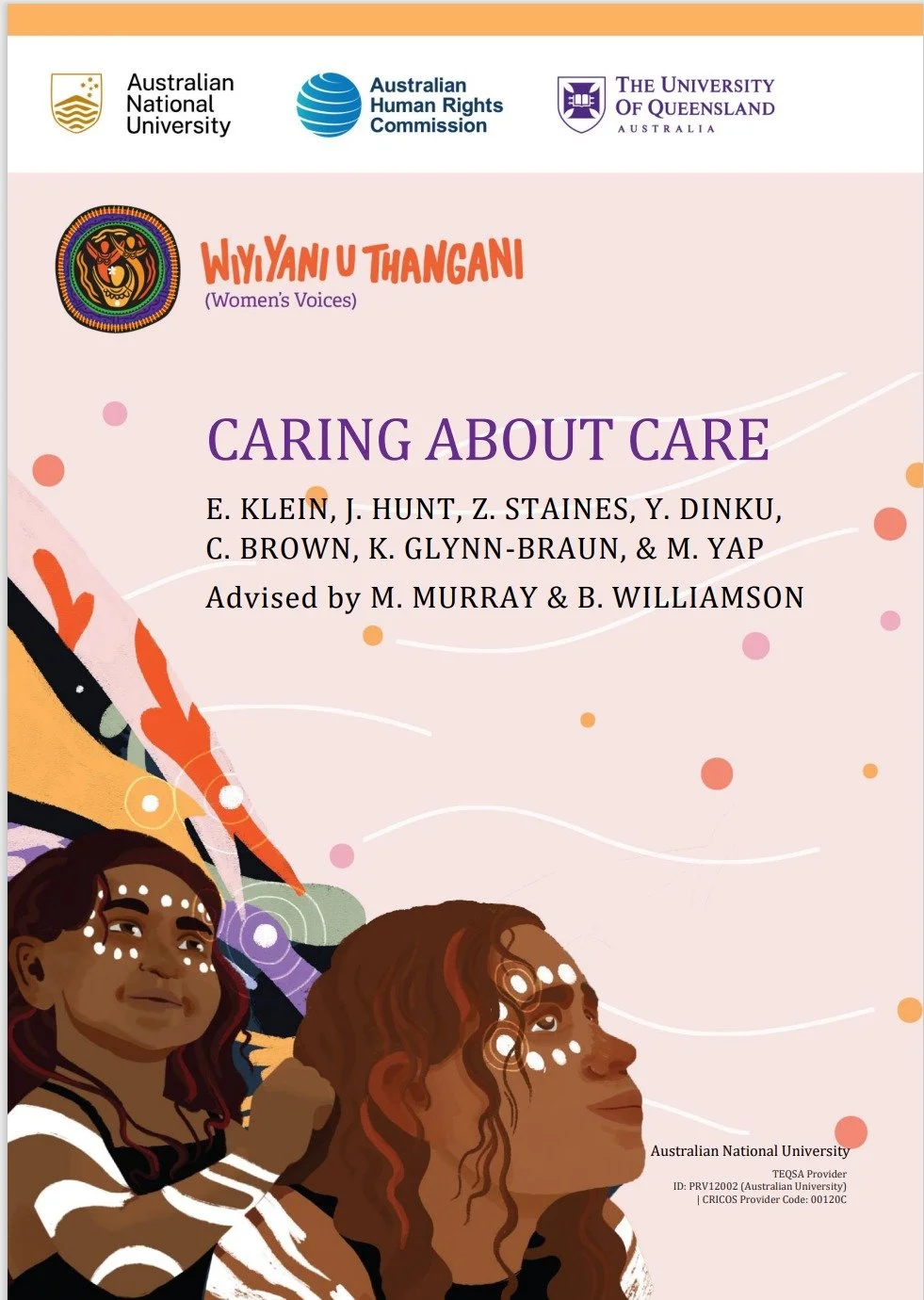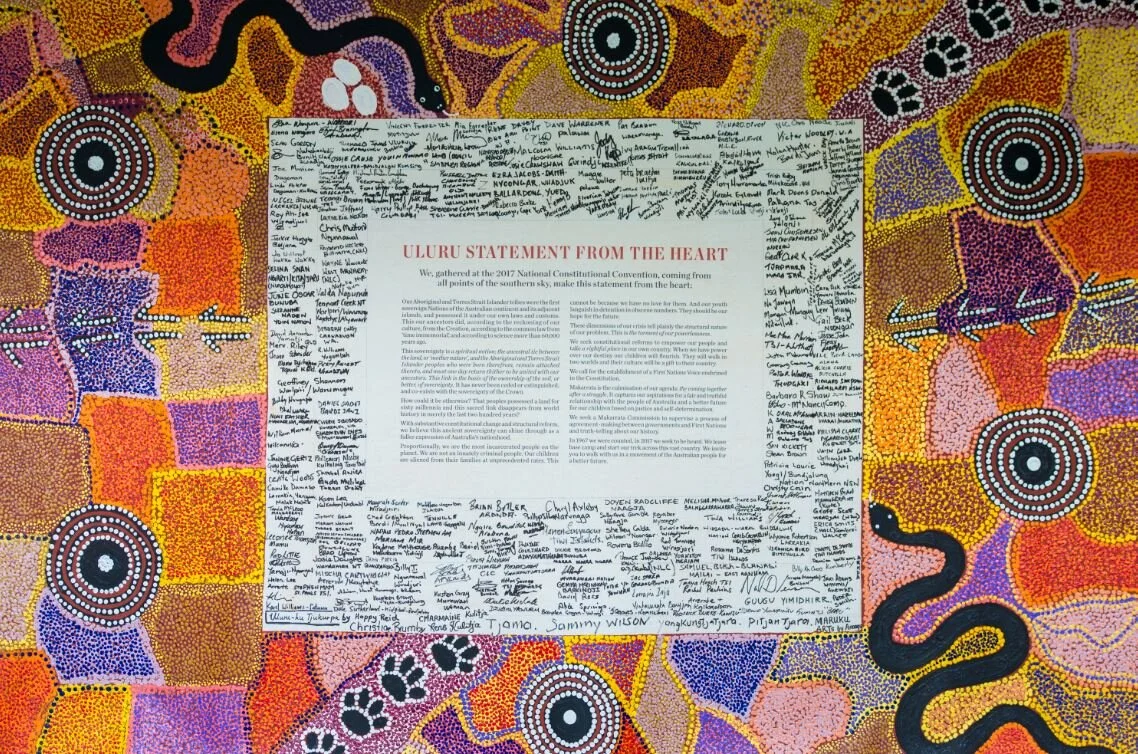As the inquiry into Robodebt reveals the depth of Australia’s shame over its treatment of welfare recipients, Dr Tjanara Goreng Goreng, Wakka Wakka Wulli Wulli woman, academic, unionist, former public servant and proud grandmother, answers the question: ‘What opportunities and challenges does a universal basic income (UBI) present for Aboriginal and Torres Strait Islander peoples and communities?
Read MoreAboriginal academic Dr Sharynne Hamilton describes how her research co-partnership with Elders in the Perth Aboriginal community has lead to a clear path of action to achieve justice in child protection grounded in respect, and commnunity control.
Read MoreIn the lead-up to the Federal Election, we are running a series on specific asks for policy change at the federal level. The Federal Government has made it clear they continue to support compulsory income management; there is disproportionate targeting of Indigenous people, with Indigenous women’s experiences of such programs replicating colonial control and abuse. More broadly, there are serious concerns about the gendered impacts of compulsory income management schemes and their effects on the wellbeing of children and families. Today’s analysis by Priya Kunjan (@PriyaKunjan) and the policy team at the Accountable Income Management Network (@AIMNau) provides a specific policy ask of the Federal Government – put an end to the Cashless Debit Card and BasicsCard and invest the money in ways that will make a lasting community change.
Read More‘Closing the gap’ is a major, and highly visible, government policy goal, with the intention of reducing disparities between Australia’s First Nations peoples and White communities. Despite many years, however, there has been little demonstrable progress. Today’s analysis utilises critical race theory, with important lessons for intersectional feminism. Penny Skye Taylor (@PennySkyeTaylor) and Daphne Habibis (@dhabibis), both of the University of Tasmania (@UTAS_), identify white ignorance as an overlooked key factor. This analysis is drawn from their research into Aboriginal views of White Australians and the dominant culture.
Read MoreIn today’s post, the team at Children’s Ground introduces its Dine for a Difference campaign - an opportunity to gather around a table with friends and family to learn more about the depth of First Nations knowledge and history and the injustices First Nations people face in Australia. Children's Ground is a not-for-profit organisation working to create a different future with First Nations children, families and communities experiencing the greatest levels of disadvantage in Australia, through a family-centred approach.
Read MoreDespite being 30 years since the Royal Commission into Aboriginal deaths in custody, families continue to lose loved ones. More than 455 Indigenous Australians have lost their lives in police or prison custody since the Royal Commission reported and according to families, the loss of life is higher than what has been reported. In today’s post, Eddie Cubillo, a proud Larrakia, Wadjigan, Central Arrernte man from the Northern Territory and Senior Indigenous Fellow at Melbourne Law School, University of Melbourne, highlights successive government’s failure to act on the Royal Commission’s recommendations and calls for taking real and effective action into Aboriginal deaths in custody.
Read MoreToday's post is from Tina Haywood, an author and proud Aboriginal woman. In her new book, We are Warriors: An Aboriginal Woman's Life, Tina documents lessons from her own life to encourage other women to make brave decisions, and to build broader understanding of the experiences of Aboriginal women and families navigating individual and intergenerational trauma.
Read MoreNobody would argue that 2020 has been a tough year. In today’s piece, Policy Whisperer Susan Maury (@SusanMaury) of Good Shepherd Australia New Zealand (@GoodAdvocacy) looks for the silver lining.
Read MoreHistorically, epidemics have brought a double threat: first to Indigenous health, then to Indigenous self-determination. Here Aileen Marwung Walsh and Laura Rademaker explain why Indigenous self-determination is vital to beat COVID-19.
Read MoreImplementation of the National Disability Insurance Scheme (NDIS) is the biggest reform to the disability sector since deinstitutionalisation. To the broader community it can be assumed that the NDIS will benefit all people with disabilities. In the week of International Women’s Day, Jen Hargrave (@Jen_Hargrave) of Women with Disabilities Victoria (WDVtweet) and University of Melbourne (@MSPHSC) and Maeve Kennedy (@mkennedy_vic) of Children and Young People with Disability Australia (@CDA39) look into the reform’s fitness to achieve gender equality now and for the next generation.
In this piece we discuss the NDIS’ capacity to provide women with greater choice and control, and a number of areas of equity and sustainability. We also examine the way the NDIS supports, or fails to support, women experiencing violence and consider the potential impact of broader gender equality measures on a market-based scheme.
Read MoreFew people are aware of co-design’s political roots. The concept first emerged in Scandinavia in the 1970’s through union insistence that workers be included in the major restructuring of their industries as a way of “emancipating workers at the workplace” (p. 145). Central in its philosophy is the tenet to equalise power as a prerequisite for true collaboration. For International Women’s Day, Summer May Finlay (@SummerMayFinlay) of University of South Australia explains why the government has shown bad faith in failing to adopt the full recommendations from the Uluru Statement from the Heart. As long as full citizen rights are withheld from Aboriginal and Torres Strait Islanders, women’s rights will also fail to be achieved.
Read MoreThe Closing the Gap Report 2020 was released the week before last by the Prime Minister. He frankly admitted ‘The final target — closing the gap in life expectancy within a generation — is not on track to be met by 2031’. Then he went on ‘We may not be on track to fully close the life expectancy gap in a generation – always an ambitious target – but mortality rates have improved by almost 10 per cent. This is mostly because we’ve made progress in tackling the leading cause of death: the big circulatory diseases like heart disease and stroke. This is progress.’ In this piece, Richard Madden and John Gilroy of the University of Sydney analyse the implications of this report and the statements made.
Read MoreWith the government’s recent announcement that they plan to start rolling out the Cashless Debit Card beyond its trial phase, thousands of people currently struggling to get by on low rates of the Newstart Allowance are poised to have their lives made even harder. The Accountable Income Management Network (@AIMNau) today outlines some of the key concerns why expanded the CDC is a bad idea - for low-income Australians and for the Big 4 banks, Coles and Woolworths.
Read MoreLast week was NAIDOC week - a week set aside for non-Indigenous Australians to “increase [their]awareness… of the status and treatment of Aboriginal and Torres Strait Islander Australians.” Today’s post, by Zuleyka Zevallos (@othersociology) shares her listening and learning to the unjust experiences of Indigenous women in the criminal justice system. This piece first appeared at Other Sociologist.
Read MoreAboriginal and Torres Strait Islander peoples occupy a unique position as the first sovereign peoples of Australia. And while governments have been striving to improve their relationships with as well as their abilities to represent and provide services to Indigenous Australians, there is still a long way to go.
In this post, the Australia and New Zealand School of Government’s (ANZSOG) Aurora Milroy discusses why Indigenous values and culture should be embedded in the Australian Public Service (APS), and outlines practical solutions for helping the Commonwealth begin to reset its relationship with Indigenous peoples.
Read MoreFew Australians experience more pain from government policy than Indigenous populations, and too often it is Indigenous women who bear the brunt. In today’s federal election piece, Zoe Staines (@Zoettes) of The University of Queensland places a gender lens over the troubling Welfare to Work remote community incarnation known as the Community Development Programme, and explains how it differentially disadvantages women.
Read More
















